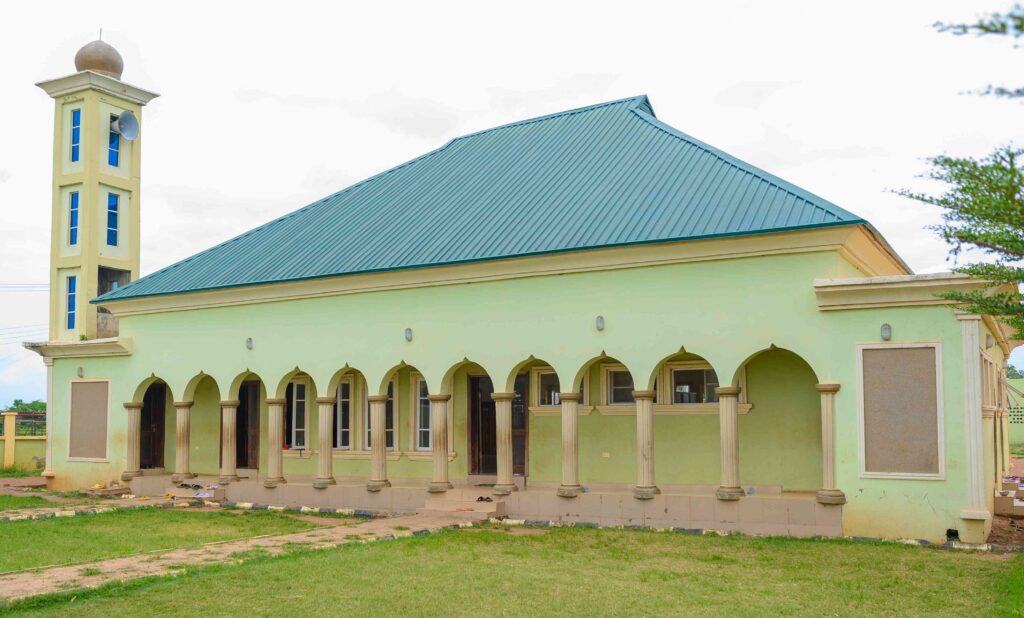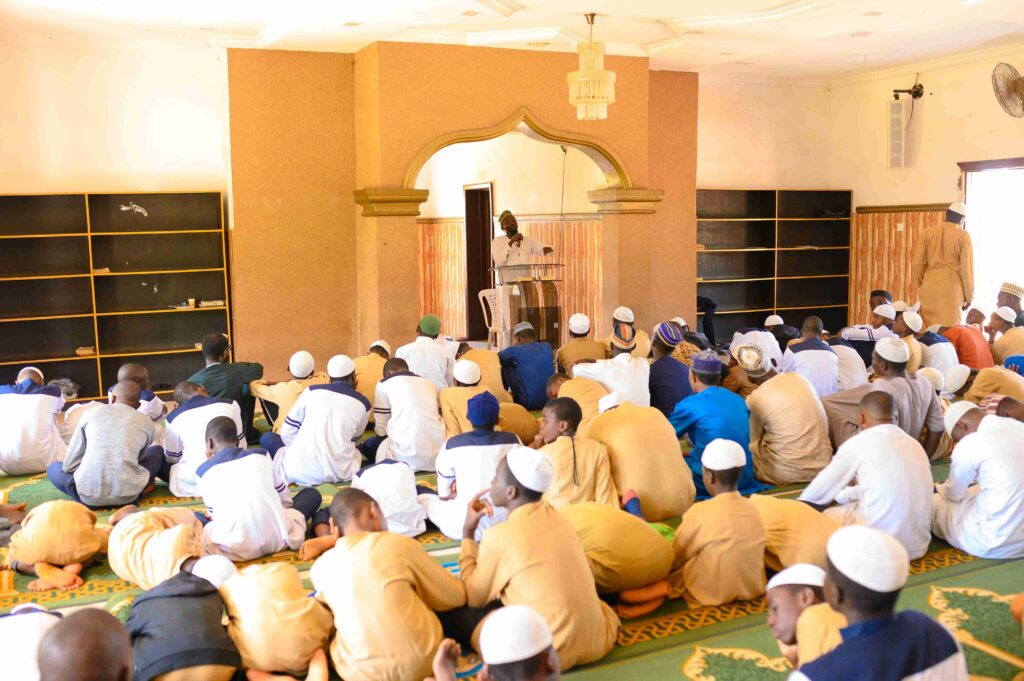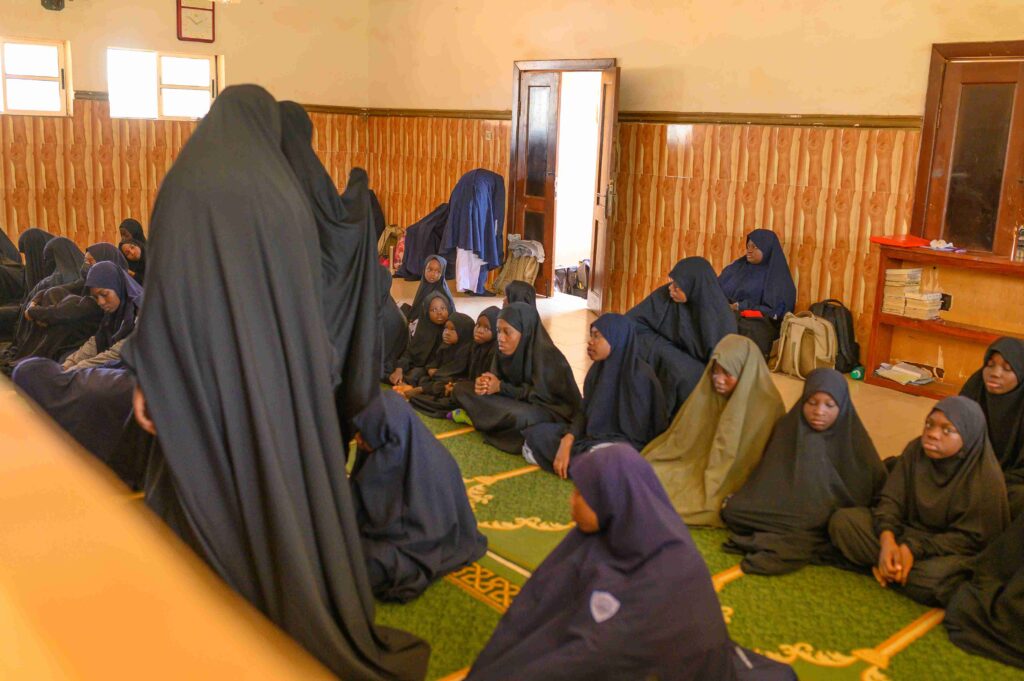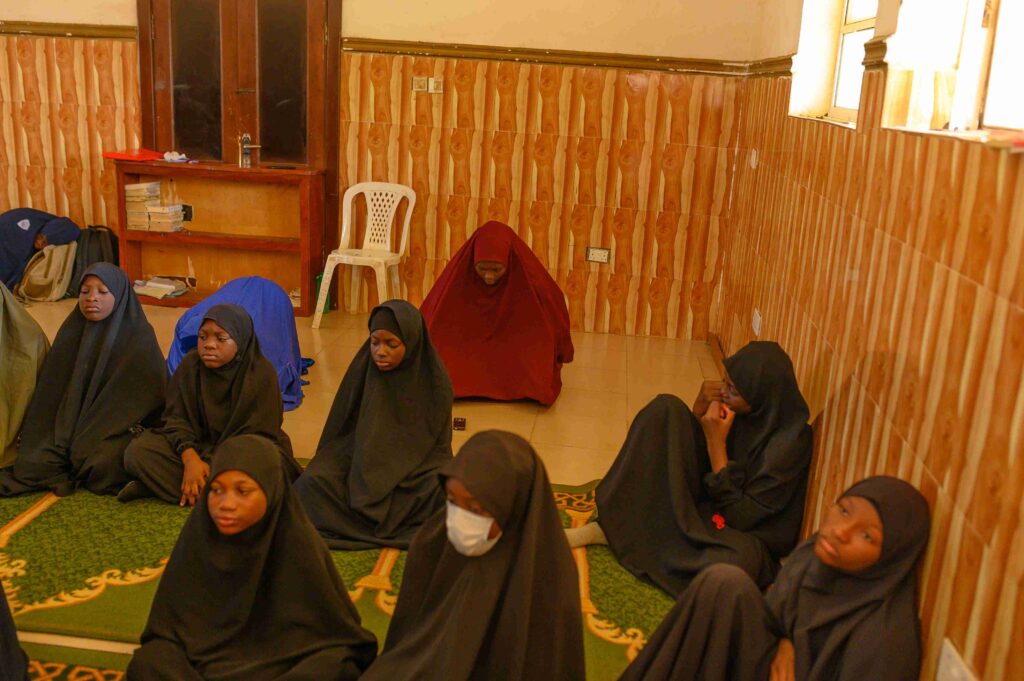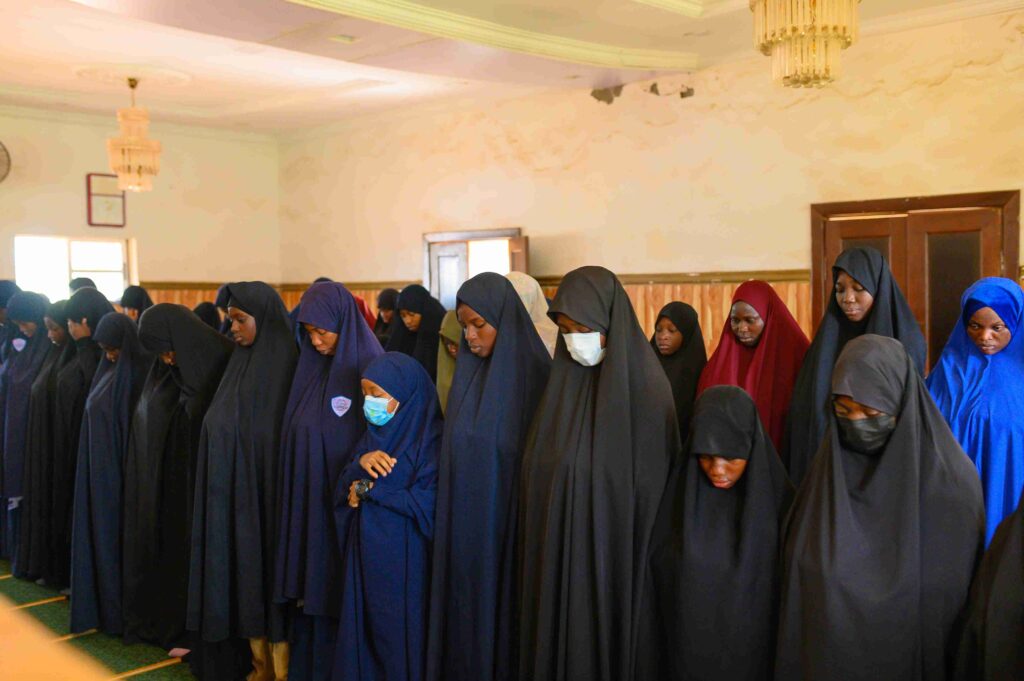Prof. AbdulRazzaq AbdulMajeed Alaro is a Professor of Law, Barrister and Solicitor of the Supreme Court of Nigeria and an internationally certified arbitrator, ACIArb, MCIArb (United Kingdom) and CIAE (Dubai). His area of specialization is Islamic Law of Financial Transactions, with emphasis on banking, insurance and capital market. Both his LL.M and Ph.D. theses were recommended by the Panel of Examiners for exchange with other universities, and he has also published in reputable peer-reviewed journals across the world. Currently, he is Professor and immediate past Head of Department of Islamic Law, University of Ilorin, Nigeria. In addition, Prof Alaro is a member of the Central Bank of Nigeria’s Financial Regulation Advisory Council of Experts, member of the National Insurance Commission’s Takaful Advisory Council, and has served at different times as Advisor/Consultant to the Debt Management Office, Securities & Exchange Commission and National Pension Commission, among others. He has been invited to speak in many high impact fora, including International Shariah Scholars Forum in 2014, 2018 and 2020, International Islamic Liquidity Management Roundtable on Sukuk in 2016, African International Conference on Islamic Finance, in 2017 & 2019, SOAS Workshop on Islamic Finance, University of London in 2020, World Halal Expo in 2020, and International Islamic Liquidity Management Roundtable on REPO market in 2021. He also heads the Research and Translation committee of the Union of African Muslim Scholars, with Headquarters in Bamako, Mali. Prof. Alaro is an alumnus of University of Madinah, Saudi-Arabia where he graduated with a First-Class degree and as the best graduating student in 1993. In June 2022, he was honoured by the University as one of its ten most outstanding alumni worldwide, and was the only Nigerian on that list. Also, Prof. Alaro was announced in 2018, as the Overall Winner of an annual international research competition, organized by CDA, Riyadh, Saudi-Arabia. He was certified in 2021 by the Global University Network for Innovation (GUNi-Africa) & African Quality Assurance Network (AfriQAN) as Accreditor for universities and other institutions of higher education. Prof. Alaro is currently undergoing the Senior Executive Course 44, 2022 at the National Institute for Policy and Strategic Studies, Kuru, where he is researching on Housing Deficit and Non-Interest Financial Products in Nigeria. He speaks and writes fluently in both Arabic and English.
Email: aralaro@unilorin.edu.ng Telephone: +2348063192966
Question: Sir could you please explain what crypto-currency is? And what is it origin?
Response: Bismillahi Rahmani Raheem Wasalatu Wasalam ala Nabiyyinah Muhammad.
Crypto-currency is a type of currency which is completely digital in nature. An item must possess certain characteristics before it qualifies to be a currency; it has to satisfy some requirements. That is to say that a currency is usually a means of exchange, a unit of account or a store of values. Crypto-currency appears to satisfy all these according to its inventor. When you have a bitcoin or a ripple or an ethereum for instance, you can say this is the worth of what I am holding; hence crypto-currency is a unit of account. At the same time it is a store of value; If you have a bitcoin or a ripple or whatever crypto-currency, certain value is assigned to it, the market value of what you are holding. You must have heard of e- naira introduced by the Central Bank. Just like crypto currency, e-naira is also a digital currency. However, in addition to being digital, Cryptocurrency has another feature that makes it unique. This feature is the technology used to produce it, which is known as as block chain technology. It works as a decentralized system. If up to a million people are to participate in the production of crypto-currencies, the block chain will work in a way that any transaction that takes place in that space will be open and known to all participants, and no single participant has a total control of what takes place. That makes it difficult to perpetrate fraud. That is why it is equally called distributed or duplicated ledger. It is decentralized and known to all. A ledger is a document that keeps record of whatever business transaction takes place. One other important feature of crypto-currency is that it operates in a free and unregulated space, and that is why it is called pair to pair mechanism. We are all equal when we are in the activity of mining or producing crypto-currency. We are like pairs and nobody is superior to another.
As for the origin, in summary, Crypto-currency was first known not quite long ago in 2008. Crypto-currency is just a term that has under it a number of currencies. So the first to be introduced was bitcoin and is the most popular. The inventor is known by a name believed not be his real name, Satoshi Nakamoto. He invented Bitcoin in 2008, but was first successfully used for commercial transactions two years later in 2010.
Question: Sir, which category of trade does crypto-currency trading fall into?
Response: Well you are now narrowing down our discussion to trading in crypto-currency; that is interesting because most people are concerned about its tradability. Crypto-currency is not all about trading. First there is a process that will lead to its production; that is mining. Now to answer the question, looking at it from the Islamic perspectives, there is a divergence of opinion among Muslim scholars. There are two major opinions; some contemporary jurists take Crypto as it is named. When you deal or trade in crypto-currency, you are actually dealing in currency, exchanging a currency with another. That is called As-sarf in Shariah terminology. But there are other notable contemporary Muslim jurists who believe that we must not see crypto-currency as a currency. It would be better to refer to it as an asset. They argue that the behaviour of crypto-currency is alien to what is known of any currency that preceded it. Take for instance the high volatility of the price. How much was it worth when it was first introduced; less than a dollar. In 2010, someone used 1,0000 bitcoin to buy 2 pizzas. So it was valueless. But few years after, it has risen to $66000 worth from less than a dollar in just 11 years of its introduction. Today (July 2022) the price has also fallen to less than $22000. You can see the high volatility. The second group of Muslim jurists therefore don’t see crypto as a currency. In commodity market you can have high volatility especially in an environment of high inflation like Nigeria. As far back as January this year, a litre of diesel was sold for 300 Naira. Now it is being sold between 800 and 900 Naira. It is a commodity and nobody would argue this because it is determined by market forces of demand and supply. There could be a hike in the price of any currency, be it gold, silver or naira but not at an unprecedented level, from less than one $1 to $66000 and back to $22000 and nobody knows what it will be in the next few months. So these are the two views. There is no consensus of opinion among the Muslim jurists.
Question: Sir Are there any guiding Islamic principles on such trade?
Response: When we refer to crypto-currency as a currency, then the Sharia rules of trading in currency shall apply. The first condition is that the two currencies subject of the exchange must be delivered on the spot and that is what has been described in an authentic hadith as ‘’yadan bi yedin’’. The equivalent of bitcoin or ripple either in dollar, pounds, or naira must be delivered the same time the cryptocurrency is delivered. The second condition is that the two must be exchanged at par, if the exchange is within the same currency. For whatever reason, you cannot exchange old naira notes for more or less amount of new naira notes. You cannot also exchange 900 e-naira for 1000 real naira note. However, you may exchange different currencies for different amounts like in the exchange of dollar with naira, dollar with crypto etc. That is the ruling if we see crypto-currency as a species of currency. But if we view it as a commodity as suggested by many jurists, then we apply the rule of commodity trading in Shariah. The rule is that you don’t trade what is not in your possession ‘’la tabi’ ma laisa ‘indaka’’. You cannot say because I am expecting 10000bitcoin tomorrow, I will sell them today at certain amount of naira; that is not permissible. Another condition is that there must not be any form of uncertainty or ambiguity in the transaction. You must know exactly the quantity and quality of what you are buying or selling. It must be transparently described.
Question: Sir, what advice would you give the Muslim Ummah on crypto-currency trading?
Response: Well, as I said earlier, this is an area in which research is still ongoing. There is no consensus of opinion among the Muslim jurists whether or not to trade in crypto-currency. But one thing is clear, which I always tell people: there is a principle in shariah which says ‘’hukmul hakeemi yarfau l kilaf”’ (The authority’s position on any matter settles the controversy therein). You may have many opinions and different views on an issue, but once the authority in a particular location has chosen an opinion, that becomes the sole rule that must be applied as far as that location is concerned. Since there is no text from the Qur’an or Hadith on whether trading in crypto-currency is halal or haram, the authority of any State or country is free to look at the benefits and harms inherent in trading in cryptocurrency, and the likely outcome of allowing people to trade freely in such items. That is the essence of what scholars have said. You will observe that majority of those contemporary jurists who declared trading in crypto as haram actually represent official lfta authority of their respective countries. Governments of these countries having seen that in the long run trading in crypto-currency poses more harm than benefit to the socio-economic interests of their nations. There is high volatility in price, and much uncertainty in the trading environment itself. If someone holds a bitcoin valued at 66,000 dollar, and all of a sudden the value becomes 22,000 dollar that person may run mad. This is what has happened in the crypto world within the last one year.
However, for me, l have not seen enough reasons to declare trading in crypto-currency as haram. All what is being advanced as the basis for its non-permissibility are not strong enough to warrant such a blanket judgment. In Islam, halal must not be declared haram just like haram must not be declared halal. Each group of scholars have reasons for what they have said about crypto-currency. As said earlier, in line with a Shariah principle once the government of a country says it has seen enough reasons to bar its citizen from trading in crypto, doing so in such a country becomes haram. Nigeria is a typical example of a country that doesn’t allow her citizens to trade in crypto. There are countries that do allow trading in crypto currency, and one of them has even declared crypto to be a legal tender. I would like to reiterate that l have not seen enough reason to give a blanket rule for its non-permissibility. However, l would warn people that it is a risky venture.
Prof. AbdulRazzaq AbdulMajeed Alaro, MCIArb, HOD of Islamic Law



